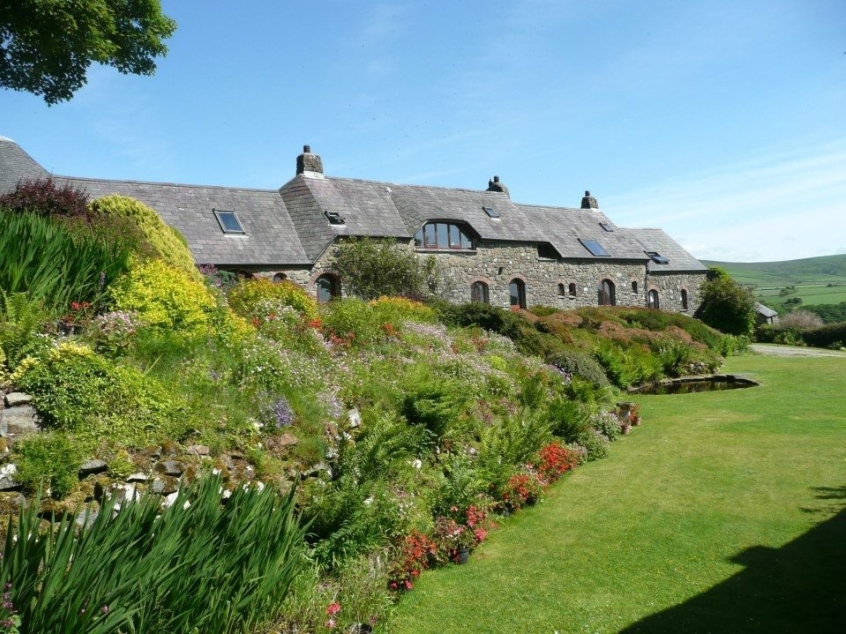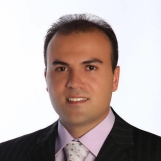
It's a world away from city megachurches and packed auditoriums with their worship bands, banks of speakers and charismatic superstar preachers.
Ffald-y-Brenin is a small cluster of buildings 600 feet up a Pembrokeshire mountain-side. It's remote, not the sort of place you would find if you weren't looking for it. An unlikely place for an outpouring of the Holy Spirit that has seen countless lives changed, claims of miraculous healings and a prayer movement that is growing throughout the world.
Or perhaps not: it's in remote, isolated places that God sometimes seems to speak most clearly. Jesus himself withdrew from the bustle of the towns to meet with God.
Ffald-y-Brenin is situated on the slopes of Carn Ingli, the 'Hill of the Angels'. According to local legend, a 6th-century saint, Brynach, used to climb the hill to pray. When he died, the angels came for him and carried him off to heaven.
For visitors to Ffald-y-Brenin today, however, it sometimes seems heaven has come down to earth. It was founded around 30 years ago when Phyllida Mould and her husband first developed it as a retreat centre, replacing the earlier farmstead there. Its recent growth has come about under the ministry of Roy and Daphne Godwin, who have been there for the last 17 years.
Roy wrote of the extraordinary happenings there in his book The Grace Outpouring. He's now written a follow-up, The Way of Blessing. The title relates to the Ffald-y-Brenin practice of declaring powerful blessings over people, with life-transforming results.
Among these are many stories of physical and emotional healing. Roy, who comes from a charismatic evangelical background and is entirely at home with the miraculous, writes of a lady with multiple health issues who was nearing the end of her life when she asked her companion to take her to Ffald-y-Brenin. Unable to walk when she arrived, he was astonished when he returned in the morning to find she'd gone for a walk by the river. She remains perfectly well. He writes of another man healed of deafness, and a woman healed of blindness.
But why should these things happen at Ffald-y-Brenin? Is there something special about the place? It's a question he's been asked many times before.
"All I know is that it's not to do with Daphne and me being special people. It appears to be the goodness and grace of God," he tells Christian Today. But it is, he thinks, one of the "thin places" in the world, where there's not much separating the spiritual and the material.
Though he speaks of remarkable things, Roy isn't a fanatic or an extremist. He comes across as calm and thoughtful, though entirely convinced that God is at work. And though he writes about many miraculous healings, he's keen to play down their significance.
"Not everyone is healed, though many are. One thing I'm concerned about is that we are perceived as a healing ministry," he says. "We are about seeking the manifest presence of God. Because God is with us, people are healed.
"It's day-by-day stuff for us. Some stories are larger than life, some we want to test out medically before we share them. But we are not trying to persuade anyone. We don't use these stories as examples to prove God's power. Most of them are spontaneous – it's just the person and God.
"Sometimes at an event there is a ministry of healing and the team ministers to those who are there. The aim is always to set a person free through the ministry of Jesus."
Furthermore, he adds: "There is inner healing too. Close to everyone is healed of emotional and spiritual problems. God heals a broken body, but it will still grow old and die. But when the inner makeup of a person is healed, that's marvellous."
As its reputation as a place to meet with God has grown, Ffald-y-Brenin has attracted more and more people. Some come for just a day to share in the community's routine of prayer, which uses the Psalms as a basis. Others come for longer, or for special events. The house itself can only sleep up to 30 and there are no towns nearby, so it has developed a network of farms and bed-and-breakfasts that provide accommodation.
It's attracted attention from overseas, as well. Local Houses of Prayer are found in many places around the world, based on the same principles and following the same rules, though Roy says the intention is not to try to replicate the Welsh mother-house: "We say to people, 'Here are some things that God seems to like. Go home and put it into your shape, and see what happens.'"
They've been invited to address Church leaders in Asia, the US, Australasia and Africa. They are, says Roy, "contemplative activists": "We learn to be still and listen to God, then go and do what he says." Their question is always, "How can two or three people follow Jesus in a particular way and proclaim a blessing that's powerful and effective?"
At the heart of the answer to that, says Roy, is a deep focus on God. "I'm concerned to help people understand that God is waking us up and waking His Church up," he says. "We aren't discipling people into 'churchianity', but into a radical commitment to follow Jesus.
"At the core of our experience is our understanding that God's desire is to bless us. He is not against us, he is for us. It's never about our performance, it's about his love. This is a ministry of blessing, it's not a new doctrine. It's how to be involved in pronouncing blessing in Jesus' name in such a way that people's lives are radically changed."
Ffald-y-Brenin may be a special place. Certainly, very special things seem to have happened there. But, says Roy: "It's not about words or technique. We are called to live and walk a life from which blessing naturally flows."
And perhaps the power of the place lies in that very simplicity. It isn't about following certain prescriptions or reciting particular words. It certainly isn't about magic. But it is most definitely about Jesus.
The Way of Blessing is published by David C Cook, price £9.99. Find out more about the book, and about Ffald-y-Brenin, here

















